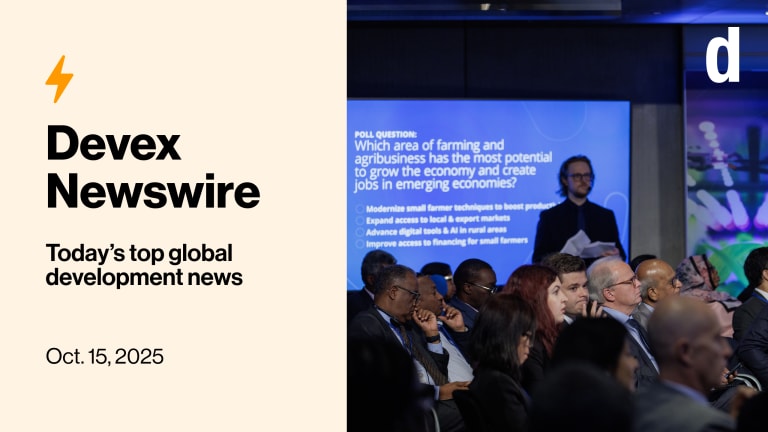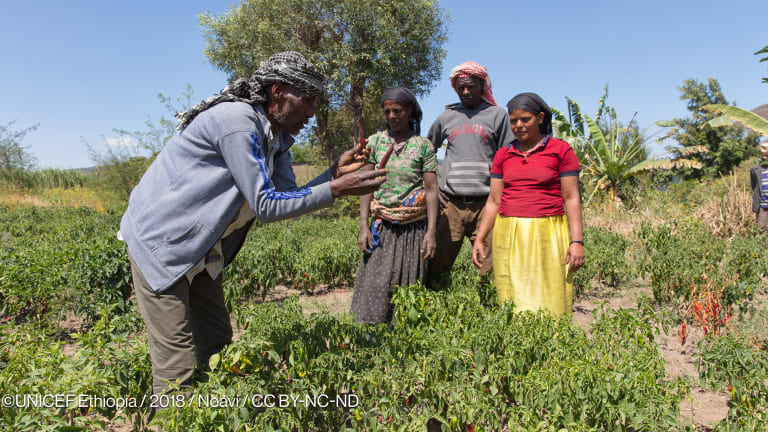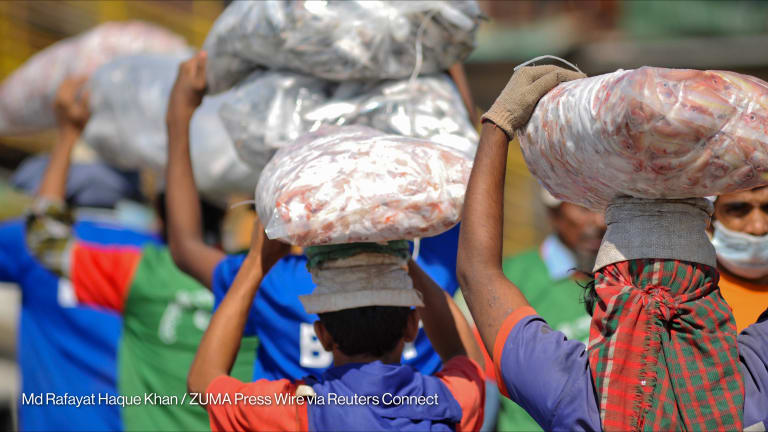
As the U.N. General Assembly turns its attention to the sustainable development goals this month, the main question is how to achieve them in a fast, efficient and lasting way. Experience has shown that reaching the proposed targets — such as the ambitious SDG to “end hunger, achieve food security and improved nutrition, and promote sustainable agriculture” — will require stakeholders to better blend the nonprofit, government, and private sectors, particularly in the development of agricultural value chains.
I see this in Malawi, where half of its approximately 15 million residents live below the poverty line, and where agriculture is still the mainstay of the economy — contributing almost 30 percent of the gross domestic product and employing more than 80 percent of the population. The local agricultural sector, which is focused on a few cash and staple crops, is underdeveloped, with tobacco still accounting for about 50 percent of exports. There are more than 1.2 million hectares of commercial farming land in Malawi. However, only 25 percent of that land is currently being utilized for commercial agriculture. Here in Malawi and across sub-Saharan Africa, fragmented markets and limited investment results in gaps in the agricultural value chain, prohibiting farmers from gaining access to markets, financial services, and agronomic training. These gaps contribute to insufficient local knowledge about commercial farming practices and the ability to create local economic wealth through typical investments in one’s land, labor and capital.
The Clinton Development Initiative’s approach to overcoming these challenges is the Anchor Farm model. We blend strategies and financing from both the development and the private sectors, operating agribusinesses alongside smallholder farmer outreach. As the country director of CDI, an initiative of the Clinton Foundation, in Malawi, I am excited to say we have been successful in helping 85,000 farmers in Malawi, Rwanda, and Tanzania benefit from climate-smart agronomic training, higher yields, and increased market access. Alongside building these smallholder networks, the initiative has been developing and investing in agribusinesses that further create local economic growth through jobs, skills development and payments for a variety of products and services necessary to run an enterprise.
To address poverty and strengthen the agricultural sector, one of the agribusinesses we’ve developed in Malawi is Tukula Farming Company, serving as a model for profitable, conservation-driven agriculture. Tukula, which means “uplifting” in the local language, forms the income-generating nucleus of the Anchor Farm model — facilitating the transfer of technology and services to smallholder farmers, strengthening their access to improved inputs, storage and financial services. CDI started the Anchor Farm model in Malawi in 2008, and since then has replicated it in Tanzania in 2013 and in Rwanda just this year. We have identified three key areas where this integrated and innovative model can strengthen the agricultural value chain: seed multiplication, infrastructure investment and local capacity development.
Seed multiplication
Across all three countries, commercial farmers and smallholder farmers alike need access to high-quality certified seed. Tukula focuses on building partnerships with both domestic and international private sector seed companies and with government research stations to multiply high-quality seeds for two main reasons. The first is to make sure that these high-quality, often climate resilient and high yielding seeds, are available throughout the market and accessible by smallholder farmers located in rural areas. The second is to help ensure that these seeds are available at reasonable prices to both commercial and smallholder farmers. Seeds are the foundation to building any farm business at both the smallholder and commercial scale. Without quality seeds, farmers are disadvantaged from the start.
Infrastructure
Strong infrastructure — including but not limited to roads, warehousing, and electricity — improves farmers’ and their family members’ access to markets and information. Once this happens, farmers have the opportunity to become business women and men — empowered to maximize their economic potential through agriculture.
Strategic partnerships with the Malawian government have facilitated investments in basic services in the proximity of the Anchor Farms, including the state-of-the-art health facilities near each farm and improved school blocks, which are run by local Ministry of Health and Education departments.
Over the long-run, a share of net profits from the Tukula farms will be reinvested into maintenance of existing basic service infrastructure as well as for new investments. Broad investments in local infrastructure enable commercial farms and smallholders to more easily access markets and services.
Local capacity development
Another thing we have noticed as we operate these farms is the need for more training for skilled laborers and farm managers. One of the most important functions of the Tukula Farming Company is job creation and development.
In any given month, upwards of 70 full-time jobs and 500 part-time jobs exist on the company’s farms, with entry-level workers earning a wage at roughly 157 percent of the current government minimum wage. Everyone, including the entry-level workers, are farmers themselves, and by working on the commercial farm they receive exposure to and training in cutting-edge farming technologies.
Focusing on job creation and local capacity development along the entire agricultural value chain — maximizing opportunities to engage the more than 85 percent of the populations throughout the world — strengthens the economic standing of the sector as a whole.
The Anchor Farm model has been created to offer a new alternative type of agribusiness, merging the best of private-sector investment and development-sector investment. The model — which can be sustained by investments in local government institutions and profitable, sustainable businesses — builds enterprises focused on strengthening agricultural value chains. The Clinton Foundation’s work demonstrates that cross-sector social innovations can empower smallholder farmers with the resources needed to work themselves out of poverty.
Stakeholders across the agricultural value chain benefit when non-profits, governments, private companies, and farmers combine efforts with the larger goal of increasing production and revenues and strengthen markets.
Sustaining Development is a three-month online series exploring the post-2015 development agenda hosted by Devex in partnership with Chevron, FXB, Global Health Fellows Program II, Philips, Pfizer, UNIDO, U.N. Volunteers and the U.S. Council for International Business. We will look at the practical steps needed to move the sustainable development goals from concept to reality. Visit the campaign site and join the conversation using #SustainDev.








